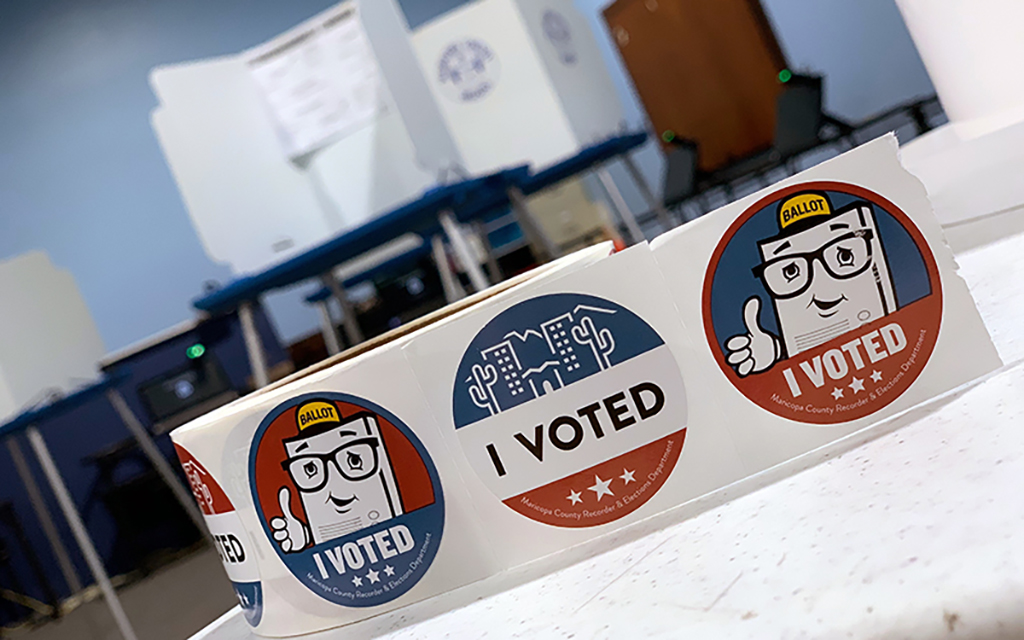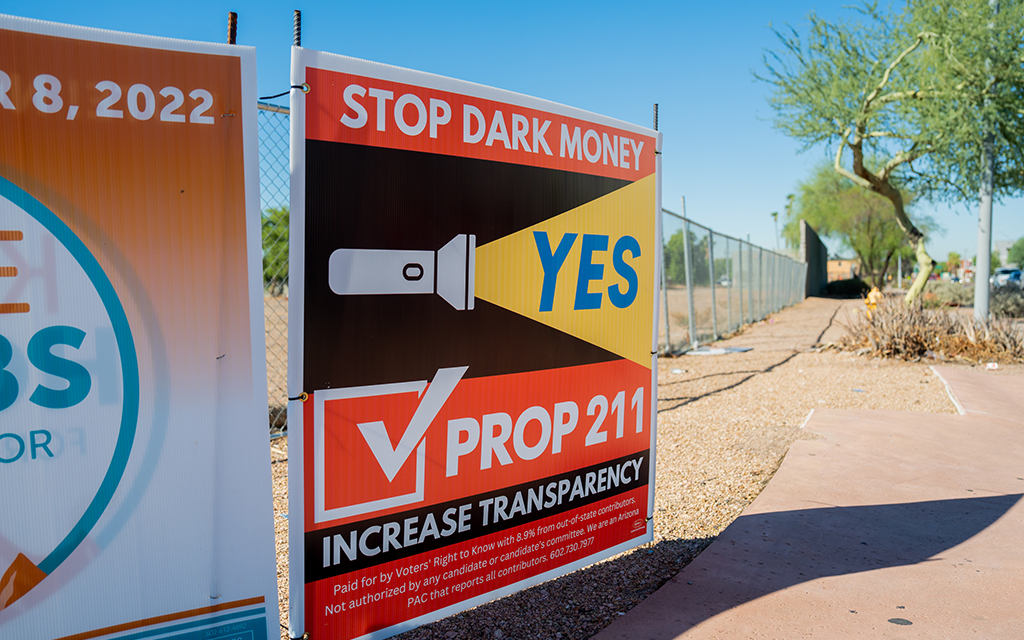
Arizona voters in November approved a pair of ballot measures that will make it harder for voters to approve ballot measures in the future, what some see as a reaction to sweeping propositions that were narrowly approved in the 2020 election. (Photo courtesy of Maricopa County Elections Department)
WASHINGTON – Arizona voters this fall made it slightly tougher on themselves when it comes to passing laws at the ballot box, but they also sent a strong message to state legislators – keep your hands off voter initiatives.
That mixed message was the upshot of a package of unrelated ballot measures that critics said aimed to rein in voters’ power after a string of victories by progressive groups at the ballot box in recent years.
But supporters said the measures were designed to keep power in the hands of voters by keeping out-of-state interests from swooping in.
“They definitely do not take any rights away from voters,” said Suzanne Kinney, CEO and president of the Arizona chapter of the Commercial Real Estate Development Association. “They’re bringing the power back to Arizona.”
Pinny Sheoran, president of the League of Women Voters of Arizona, called those arguments misleading.
“They (voters) bought into that argument, OK, let’s put it that way. They bought into that sales pitch, we still think it was a sales pitch, that was misleading,”Sheoran said. “And it’s going to become harder for us, for the citizens, to bring forward very critical initiatives.”
Kinney and Sheoran were talking about propositions 129 and 132 – which will limit future ballot initiatives to a single subject and require voter-approved tax increases to pass with 60% of the vote – and Proposition 128, which would have made it easier for the Legislature to amend voter-approved measures that are found to have legal flaws.

While they approved two measures restricting their ability to propose and pass initiatives, Arizona voters overwhelmingly rejected a measure that would have made it easier for state lawmakers to change voter-approved initiatives. (File photo by Ellen O’Brien/Cronkite News)
Voters approved the first two but overwhelmingly rejected Proposition 128, with 1.5 million voters rejecting it and 859,675 supporting it, a 63.6-36.4% margin.
The measure would have let a simple majority of state lawmakers amend voter-approved initiatives or deny funding for them if the initiatives. Currently it takes 75% of the Legislature to make such a change, a process that remains in place with the failure of Proposition 128.
Sheoran took that as a victory, noting that “the voters on one hand are saying we don’t want the legislature to interfere.”
On the other hand, she said, voters agreed to make it harder to propose and approve ballot measures in the first place, with their passage of propositions 129 and 132. Proposition 132 had the narrowest margin of the three measures, with 50.72% of voters approving it to 49.28% rejecting it, according to unofficial numbers from the secretary of state’s office.
Sheoran pointed to what she called the irony of barely more than 50% of voters approving a measure that would require 60% approval for revenue-enhancing measures in future elections. She called it “hypocritical” and a “huge imposition on the voters.”
“We think it’s both morally wrong and we think it’s going to harm and hurt the citizens’ ability to appropriately and fairly provide tax revenues to fund education and other services,” Sheoran said.
It was the success of voter-approved tax increases two years ago that critics believe led to the three voter-oriented ballot initiatives this year. In 2020, just 51.7% of voters approved the Invest in Education Act, which would have raised income taxed on the highest earners in the state to fund state schools.
The tax increases were later rejected as unconstitutional by the Arizona Supreme Court.
Kinney said the restrictive measures were needed to cut the influence of out-of-state groups and restore the intent of the state’s constitutional framers.
“It (the initiative process) was designed to be a process for residents of Arizona, not other states, to take matters to the ballot when they felt that the Legislature was not adequately addressing those matters,” Kinney said. “And with these having passed, that original intent is going to be met more clearly than it has been in the past.”
While the successful initiatives, 129 and 132, took effect after the state certified election results on Dec. 5, their impact will likely not be felt until the next round of elections in 2024. But opponents say the impact of Proposition 129 could be felt months earlier by activists who are trying to put issues on the ballot by initiative.
Rep. John Kavanagh, R-Fountain Hills, introduced Proposition 129, which limits future ballot measures to a single subject that can be represented in the title. He said its passage was “a great victory for the taxpayers and a defeat for special interests who would abuse the initiative system.”
Kavanagh said he did not agree with the characterization of his legislation, along with propositions 128 and 132, as anti-voter. But he said he was not surprised.
“Obviously the other side is going to use spin words and propaganda to try to convince people to vote the way they want,” Kavanagh said after the election. “And, you know, pretty much everybody does that. That’s the way the game is played.”






